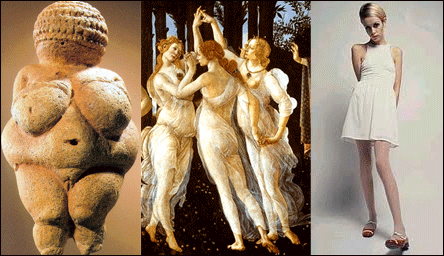Judgement takes place constantly. A process of almost unconscious thought and a built in survival mechanism, the ability to judge is considered one of the most advanced and useful evolutionary traits humans have. However in modern day society, judgement appears to have gained negative connotations, extending itself to become a brand imprinted upon those who do not fall within the narrowly defined categories or limits of what is deemed acceptable.
Whilst it is evident that perception of character often places too much emphasis on physical appearance, moving away from this initial judgement is harder than you may at first think. Expectations have been placed upon women’s bodies (although men are not exempt from this) for centuries, with art forms like sonnets and paintings providing an insight into ‘beauty’ of that time. The differing perception of eras is of note, from the curves encapsulated by Michelangelo’s sculptures during the Italian Renaissance to the straight up and down, boyish silhouette of the nineteen twenties, iconified for many in the writing of Fitzgerald and Hemingway. Perception of what is the most beautiful or the most attractive changes like fashion, always evolving, ebbing and flowing back upon itself. Yet the notion of an ideal remains constant.
Regardless of their changing nature, ideals are almost always impossible to reach; often strived for, rarely attained. In defining an ideal way in which to be perceived or an ideal body shape, unrealistic and sometimes unsafe goals are being set. The unachievable nature of such ideals for the average person sparks the question as to why there has to be an ideal in the first place- is it based upon a desire to re-establish some form of social hierarchy? Or is it to give something to aspire to, to inject another element of purpose into mundane lives? Whatever the point of an ideal, they are undoubtedly something damaging to many, with the unrealistic expectations they provide resulting in unhappiness and reducing self-esteem. Everyone everywhere is different- you should be your own ideal.
This refusal to be slotted neatly into pre-determined categories is how I see body positivity. It is the idea that you can be happy with your own individualism without having necessarily to conform to anyone else’s standards. Clichéd as it sounds, the person is always far more important than the silhouette.
By Nuala Burnett

